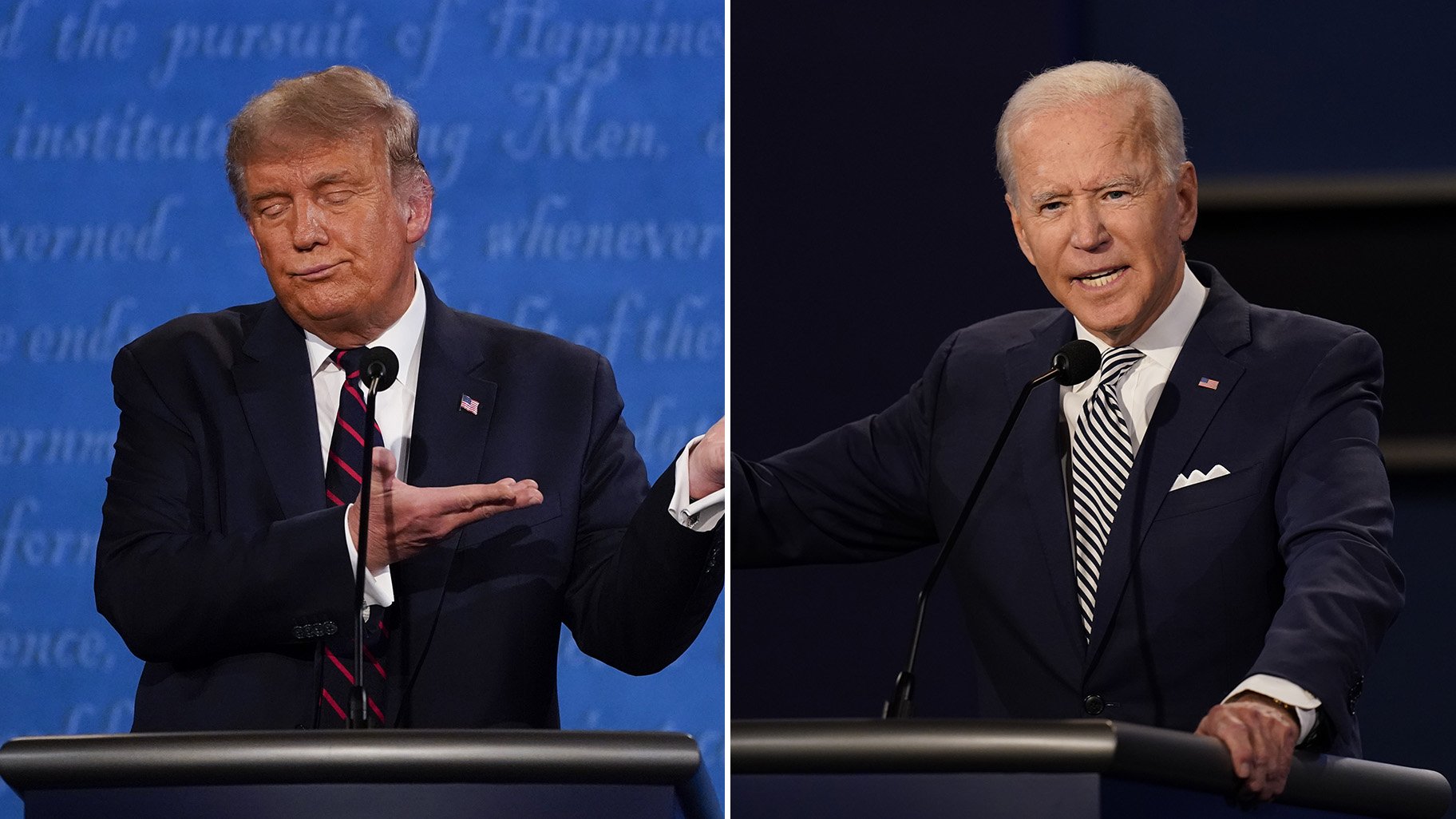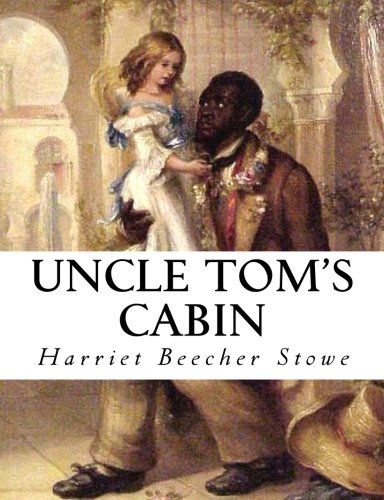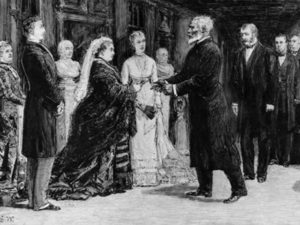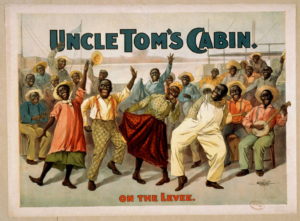Culture
Trust In News Hitting Lows During Trump Presidency
Published
6 years agoon

(Via AP News)
RALEIGH, N.C. (AP) — When truck driver Chris Gromek wants to know what’s really going on in Washington, he scans the internet and satellite radio. He no longer flips TV channels because networks such as Fox News and MSNBC deliver conflicting accounts tainted by politics, he says.
“Where is the truth?” asks the 47-year-old North Carolina resident.
Answering that question accurately is a cornerstone of any functioning democracy, according to none other than Thomas Jefferson. But a year into Donald Trump’s fact-bending, media-bashing presidency, Americans are increasingly confused about who can be trusted to tell them reliably what their government and their commander in chief are doing.
Interviews across the polarized country as well as polling from Trump’s first year suggest people seek out various outlets of information, including Trump’s Twitter account, and trust none in particular.
Many say that practice is a new, Trump-era phenomenon in their lives as the president and the media he denigrates as “fake news” fight to be seen as the more credible source.
“It has made me take every story with a large grain, a block of salt,” said Lori Viars, a Christian conservative activist in Lebanon, Ohio, who gets her news from Fox and CNN. “Not just from liberal sources. I’ve seen conservative ‘fake news.’”
Democrat Kathy Tibbits of Tahlequah, Oklahoma, reads lots of news sources as she tries to assess the accuracy of what Trump is reported to have said.
“I kind of think the whole frontier has changed,” said the 60-year-old lawyer and artist. “My degree is in political science, and they never gave us a class on such fiasco politics.”
Though Trump’s habit of warping facts has had an impact, it’s not just him.
Widely shared falsehoods have snagged the attention of world leaders such as Pope Francis and former President Barack Obama. Last year, false conspiracy theories led a North Carolina man to bring a gun into a pizza parlor in the nation’s capital, convinced that the restaurant was concealing a child prostitution ring. Just last week, after the publication of an unflattering book about Trump’s presidency, a tweet claiming that he is addicted to a TV show about gorillas went viral and prompted its apparent author to clarify that it was a joke.
Trump has done his part to blur the lines between real and not.
During the campaign, he made a practice of singling out for ridicule reporters covering his raucous rallies. As president, he regularly complains about his news coverage and has attacked news outlets and journalists as “failing” and “fake news.” He’s repeatedly called reporters “the enemy of the people” and recently renewed calls to make it easier to sue for defamation.
About 2 in 3 American adults say fabricated news stories cause a great deal of confusion about the basic facts of current affairs, according to a Pew Research Center report last month. The survey found that Republicans and Democrats are about equally likely to say that “fake news” leaves Americans deeply confused about current events. Despite the concern, more than 8 in 10 feel very or somewhat confident that they can recognize news that is fabricated, the survey found.
Victoria Steel, 50, of Cheyenne, Wyoming, said it’s important for people to invest time in finding reputable media sources or even friends to get the most information they can.
“You’re probably not going to get enough information out of sound bites, and you’re certainly not going to get it in a tweet,” said Steel, who says she voted for Democrat Hillary Clinton in 2016.
Two-thirds of Americans get at least some of their news from social media, Pew found.
“I think part of the problem is that now people are getting too much information and it confuses them and they don’t know how to decipher the true and the fake,” said Trent Lott, a former Senate Republican leader from Mississippi who’s worked in Washington for nearly half a century. He isn’t fond of Trump’s Twitter habit, but also says he sees bias in the coverage of Washington by the mainstream media.
There’s been no love for the media for decades. The percentage expressing a great deal of confidence in the press has eroded from a high of 28 percent in 1976 to just 8 percent in 2016, according the General Social Survey conducted by NORC at the University of Chicago.
“Trump didn’t invent this. He didn’t cause people to start feeling this way. He’s tapping into a vein that already existed,” said Gary Abernathy, publisher and editor of the Times-Gazette of Hillsboro, Ohio, one of the few daily papers that endorsed Trump. People, he added, “are nodding their heads right away because that’s how they’ve felt.”
Nicco Mele, director of the Shorenstein Center on Media, Politics and Public Policy at Harvard, views Trump as a symptom of long-term trends. “Now, can he accelerate them and make them worse? Almost certainly.”
When Trump labels something “fake news,” ″I just have started assuming … whatever he’s talking about must be true,” said 46-year-old Joseph Murray of Mustang, Oklahoma, a registered independent. “I feel like that attitude didn’t start until he took office.”
Trump tends to inflate the significance of what he’s done. He claims his tax cuts are the biggest in history, his accomplishments surpass those of all previous presidents, and his election victory was a “landslide.” None is true.
He still insists there were millions of illegal votes cast in the 2016 election, even though there’s no such evidence.
Even on matters existential, Trump makes things up.
Taunted on Twitter by North Korean leader Kim Jong Un, Trump responded Jan. 3 that his own nuclear button “is a much bigger and powerful one than his, and my Button works!” There is no such physical button.
Trump often bypasses the vast information-gathering apparatus that reports to him in favor of getting his reality from TV, or sometimes just his gut. That has led him to conclude wrongly that a rare riot in Sweden over a drug crime was instead linked to refugee extremism. He also falsely claimed that Obama tapped his phones at Trump Tower in the campaign.
“I’m a very instinctual person, but my instinct turns out to be right,” he told Time magazine. Besides, “I’m quoting highly respected people from highly respected television networks.”
Kellman reported from Washington. Associated Press writers Dan Sewell in Cincinnati, Claudia Lauer in Dallas, Bob Moen in Cheyenne, Wyoming, and Calvin Woodward in Washington contributed to this report.
Culture
Rabbi Shmuley Having ‘Nervous Breakdown’ says Alex Jones
Published
4 weeks agoon
March 24, 2024
In the whirlwind of social media controversies, few can match the intensity and unpredictability of Alex Jones. Known for his provocative statements and unyielding conspiracy theories, Jones recently took to Twitter to express his disdain for Rabbi Shmuley Boteach’s Purim costume choice.
You have clearly had a nervous breakdown. You go around starting fights will people and then flip out when they respond. For the sake of your family seek help. https://t.co/8NfTv0sS0k
— Alex Jones (@RealAlexJones) March 24, 2024
In a scathing tweet, Jones condemned Rabbi Shmuley’s attire and behavior, accusing him of having a “nervous breakdown.” The rabbi had donned a costume portraying what he termed a “Candace Owens Jew,” accompanied by a bizarre ensemble featuring references to money and a provocative assertion about Jewish identity.
“For Purim I’ve dressed up as a Candace Owens Jew,” Rabbi Shmuley wrote, adding a string of controversial remarks about Jewish stereotypes and dual loyalties. The costume, seemingly intended as a satirical commentary, sparked outrage and criticism from many quarters.
Jones, never one to shy away from confrontation, seized the opportunity to denounce Rabbi Shmuley’s actions. “You go around starting fights with people and then flip out when they respond,” Jones tweeted. He urged the rabbi to seek help for the sake of his family, implying that Rabbi Shmuley’s behavior was symptomatic of a deeper issue.
The exchange between Jones and Rabbi Shmuley highlights the complexities of social media and the power of provocative speech. Both figures are no strangers to controversy, with Jones notorious for his conspiracy-laden rants and Rabbi Shmuley often courting controversy with his outspoken views on various issues.
Purim, a Jewish holiday known for its revelry and merrymaking, is traditionally marked by costume parties and playful satire. However, Rabbi Shmuley’s choice of attire crossed a line for many, tapping into sensitive issues of anti-Semitism and racial stereotypes.
By dressing as a caricatured version of a “Candace Owens Jew,” Rabbi Shmuley waded into dangerous territory, perpetuating harmful stereotypes and reinforcing negative perceptions of Jewish people. His attempt at satire fell flat for many, instead sparking condemnation and outrage.
In response, Alex Jones delivered a blistering rebuke, calling out Rabbi Shmuley’s behavior and urging him to seek help. While Jones himself is no stranger to controversy, his criticism of Rabbi Shmuley’s costume choice underscores the seriousness of the issue at hand.
In an era where social media amplifies voices and magnifies controversies, individuals must exercise caution and responsibility in their online interactions. What may seem like harmless satire to some can perpetuate harmful stereotypes and fuel division.
As the dust settles on this latest social media skirmish, it serves as a reminder of the power of words and the importance of thoughtful discourse. In a world already fraught with tensions and divisions, it is incumbent upon all of us to strive for understanding and empathy, even in the midst of disagreement.

Biden has unsuccessfully been able to reform any issues left by the Trump administration and quite frankly has only made it worse. Inflation and the economy is hurting everyone, especially lower income voters who ironically voted for Biden. This has set off a windstorm for Biden as his approval rating goes further down the drain. With little hopes of any major policy wins before the 2022 election, Biden’s Administration, which championed “getting things done”, has stopped before it really even got off the ground.
With 2022 around the corner we will see a slue of Republican Presidential challengers, with Trump of course, being at the center of the pack. Rumors have it that Ron DeSantis, Chris Christie, and the like of Mitt Romney will all join the nomination, however this is only rumor and speculation. Trump however, will become the nominee. It would be hard for anyone to top someone who has already been President, even a firebrand like DeSantis, who has garnered national support for a Presidential run.
Biden has failed so miserably that when a another Democrat attempts to challenge Trump’s economy compared what we are in now, it will be completely inexcusable. Not to mention the major social engineering the majority of parents and Americans are rejecting in terms of the LGBTQ Mafia Agenda & BLM. Biden, if anything, has completely destroyed the Democratic party’s chance of being a favorite with middle and upper-income voters, setting a disasters for the Democrats in 2024.
Culture
The Mis-education of Uncle Tom. The Racist Democrats. Part 2
Published
4 years agoon
June 23, 2020
The left will rewrite history, whether it be Uncle Tom or Confederate statues. Don’t believe the hype.
In 1852 Harriet Beecher Stowe wrote the fictional novel, Uncle Tom’s Cabin. The character Uncle Tom was based on a real life person, Josiah Henson a former slave. Uncle Tom’s Cabin was the most read book of the 19th Century. There was printing day and night 24 hours a day to keep up with demand. It was translated into over 60 languages. As history would have it, President Abraham Lincoln the first Republican President, met Harriet Beecher Stowe and said, “So you’re the little lady that wrote the book that started this big war”. Uncle Tom’s Cabin was that influential.
Uncle Tom’s Cabin had such an impact on the abolition of slavery, that the southern slave states made it a crime punishable by imprisonment or death to have, read, print or sell the book. It was even popular internationally putting more pressure on the institution of slavery. This gave a big boost to the slavery abolitionists movement among whites, blacks, Christians and the Republican party.
The real Uncle Tom was born Josiah Henson June 15th, 1789 in (Charles County) Rockville, Maryland. He was seperated from his family at 9 years old when his father back-talked a slave owner and was punished with a hundred lashes and had his right ear cut off. Josiah was owned by slave master Isaac Riley. Riley beat a young Josiah unconscious for having a book of grammar. It was forbidden in those days for a slave to learn how to read. But later on Josiah saved money to buy his freedom. To his dismay he was cheated out of his savings and freedom by master Riley. He then escaped to freedom in Kentucky. Soon many that escaped with him were sold and auctioned off. Then in 1850 in the compromise agreement the Democrat slave states were able to get into the legislation the Fugitive Slave Act which made it possible for Marshal’s to automatically deputize anyone in free states to help apprehend a runaway slave from a slave state. This was a strengthening of the Fugitive Slave Act of 1793 which covered runaway slaves, who sought freedom in free states. So Josiah Henson and his family of two children and a wife trekked 600 miles on foot from Cincinnati to Canada to freedom. That was the only place where a man could be truly free after the Fugitive Slave Act of 1850.
Josiah started a Black settlement in Ontario, Canada with a multi-racial school which was unheard of at that time. He became a minister, author, educator and abolitionist who helped 100 slaves escape to Canada to freedom. He preached all over the U.S. and Europe, even getting a personal meeting with the Queen of England, Queen Victoria.
Josiah also lead a Black Militant Unit in The Canadian Rebellion of 1837-38. The Rebellions of Upper and Lower Canada were against The British Crown and political reform.
The southern slave states could not let the positive heroic legend of Uncle Tom stand. His faithful and brave character in the fictitious book who was beaten by Sambo every night until his death had to be diminished, as not to embolden the other slaves to follow in Josiah’s cavernous footsteps. So they created the Uncle Tom traveling minstrel show. This depicted Uncle Tom as a dumb, ignorant buffoonish character. This show traveled all over erasing the positive image of Josiah the real Uncle Tom. Remember at this time many still were forbidden to read but everyone could understand a traveling minstrel show. That even made it all the more sinister. Feeding falsehoods to and unsuspecting people. And to this day our people do not know Josiah Henson, the real Uncle Tom, educator, minister, author, abolitionist and goodwill ambassador. Do not let them rewrite history. Do not let them tear down his statue.
News@11
By Michael Ameer

Cracking the OddPath Code: Iowa Gymnastics Under Review

Lucas Gage Returns to X After Exposing Palestine Atrocities & Ban Over Alleged Harassment

Rabbi Shmuley Having ‘Nervous Breakdown’ says Alex Jones

Unveiling Oddpath: Mayor Tiffany O’Donnell and Amanda Goodman Have Failed Cedar Rapids, Iowa

AG Ken Paxton: “SB 4, is Now In Effect”

Unveiling Oddpath: Mayor Tiffany O’Donnell and Amanda Goodman Have Failed Cedar Rapids, Iowa

Cracking the OddPath Code: Iowa Gymnastics Under Review

Rabbi Shmuley Having ‘Nervous Breakdown’ says Alex Jones








